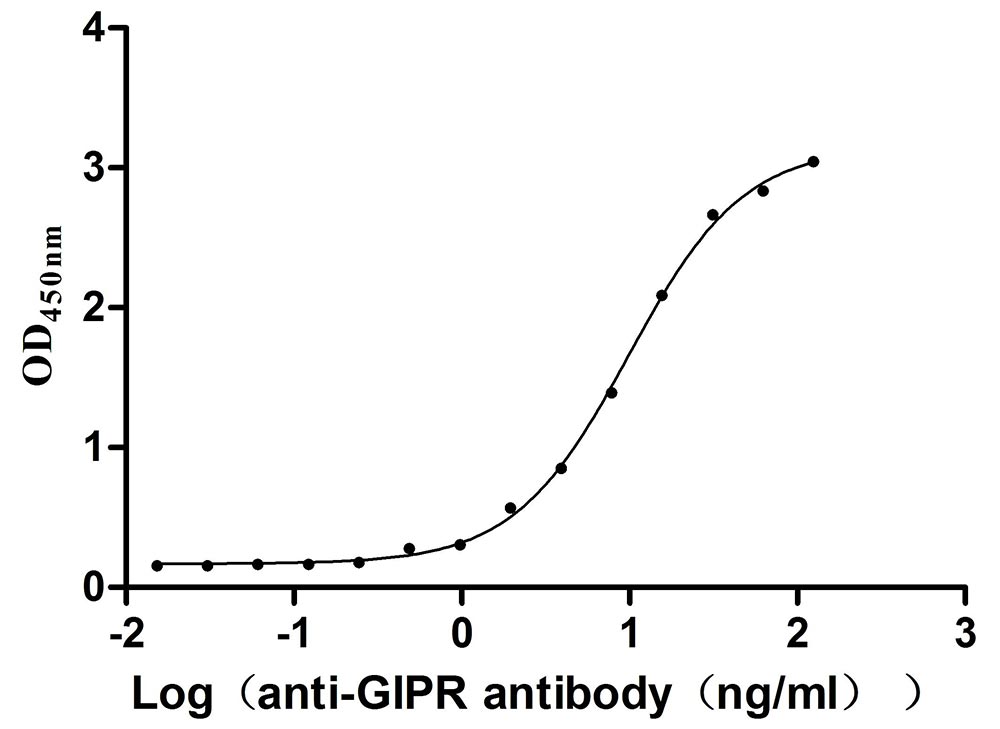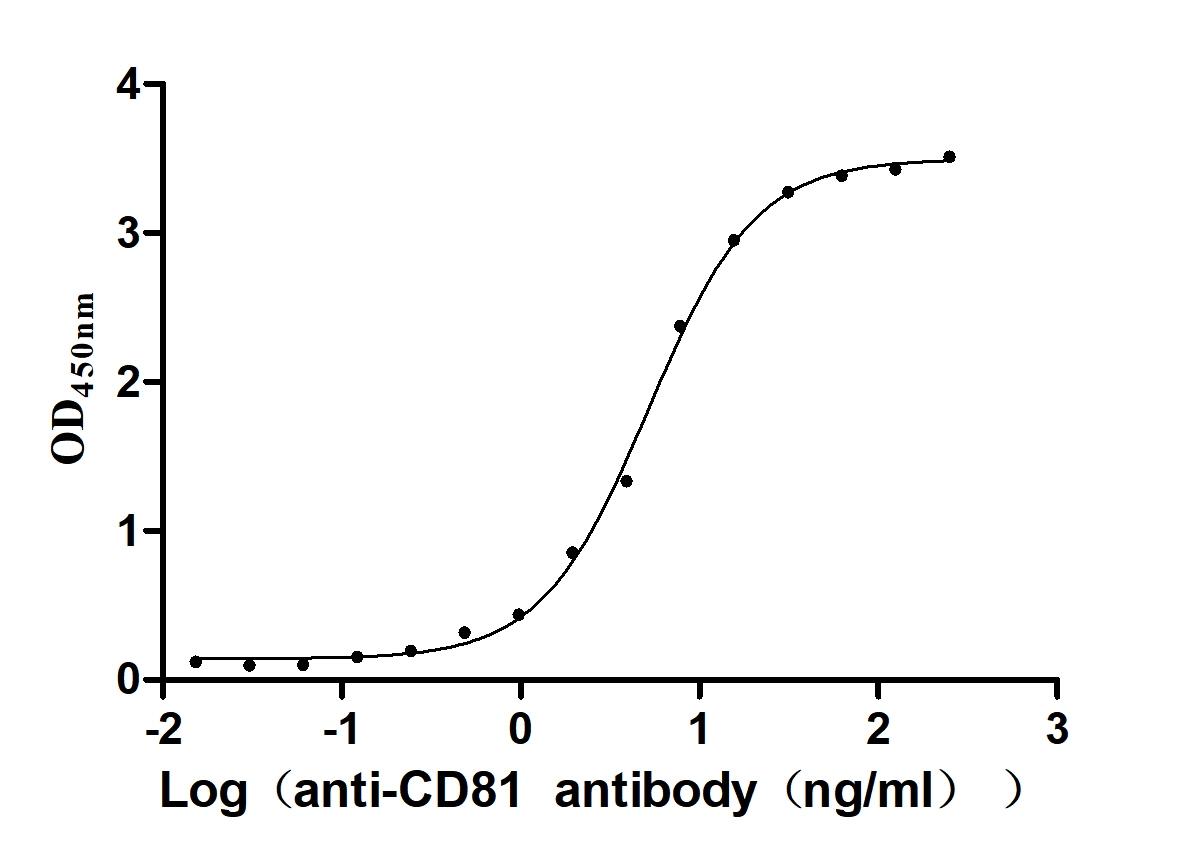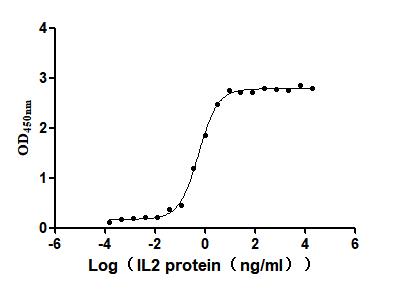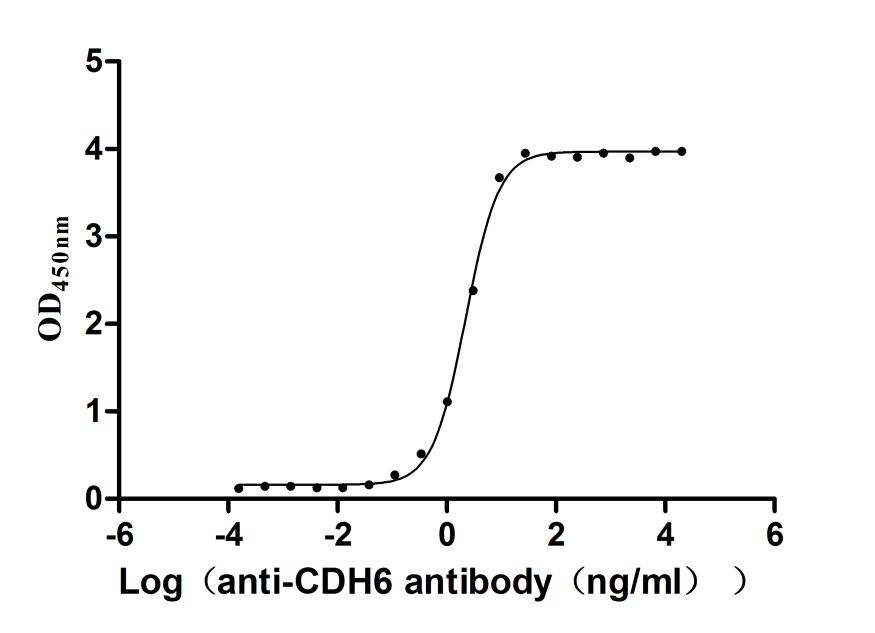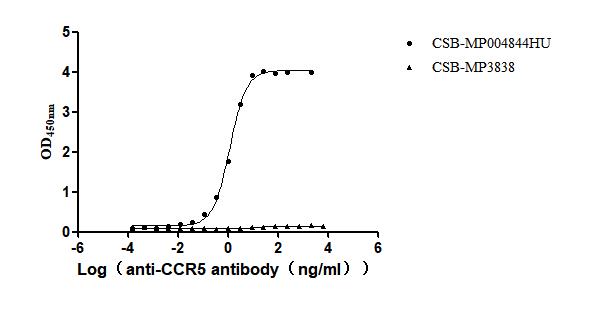Recombinant Human UDP-glucuronosyltransferase 1A1 (UGT1A1)
-
货号:CSB-YP025570HU
-
规格:¥1500
-
图片:
-
其他:
产品详情
-
纯度:Greater than 90% as determined by SDS-PAGE.
-
基因名:
-
Uniprot No.:
-
别名:BILIQTL1; Bilirubin specific UDPGT isozyme 1; bilirubin UDP glucuronosyltransferase 1 1; bilirubin UDP glucuronosyltransferase isozyme 1; Bilirubin-specific UDPGT isozyme 1; EC 2.4.1.17; GNT1; HUG BR1; HUG-BR1; HUGBR1; PHENOL/BILIRUBIN UDP GLUCURONOSYLTRANSFERASE; UD11_HUMAN; UDP glucuronosyltransferase 1 1 [Precursor]; UDP glucuronosyltransferase 1 family polypeptide A1; UDP glucuronosyltransferase 1A1; UDP GLYCOSYLTRANSFERASE 1; UDP-glucuronosyltransferase 1-1; UDP-glucuronosyltransferase 1-A; UDP-glucuronosyltransferase 1A1; UDPGT; UDPGT 1-1; UGT 1A; UGT-1A; UGT1; UGT1 01; UGT1*1; UGT1-01; UGT1.1; UGT1A; Ugt1a1; URIDINE DIPHOSPHATE GLUCURONOSYLTRANSFERASE, BILIRUBIN/PHENOL; URIDINE DIPHOSPHATE GLYCOSYLTRANSFERASE 1; URIDINE DIPHOSPHATE GLYCOSYLTRANSFERASE 1 FAMILY, POLYPEPTIDE A1
-
种属:Homo sapiens (Human)
-
蛋白长度:Full Length of Mature Protein
-
来源:Yeast
-
分子量:59.1kDa
-
表达区域:26-533aa
-
氨基酸序列HAGKILLIPVDGSHWLSMLGAIQQLQQRGHEIVVLAPDASLYIRDGAFYTLKTYPVPFQREDVKESFVSLGHNVFENDSFLQRVIKTYKKIKKDSAMLLSGCSHLLHNKELMASLAESSFDVMLTDPFLPCSPIVAQYLSLPTVFFLHALPCSLEFEATQCPNPFSYVPRPLSSHSDHMTFLQRVKNMLIAFSQNFLCDVVYSPYATLASEFLQREVTVQDLLSSASVWLFRSDFVKDYPRPIMPNMVFVGGINCLHQNPLSQEFEAYINASGEHGIVVFSLGSMVSEIPEKKAMAIADALGKIPQTVLWRYTGTRPSNLANNTILVKWLPQNDLLGHPMTRAFITHAGSHGVYESICNGVPMVMMPLFGDQMDNAKRMETKGAGVTLNVLEMTSEDLENALKAVINDKSYKENIMRLSSLHKDRPVEPLDLAVFWVEFVMRHKGAPHLRPAAHDLTWYQYHSLDVIGFLLAVVLTVAFITFKCCAYGYRKCLGKKGRVKKAHKSKTH
Note: The complete sequence including tag sequence, target protein sequence and linker sequence could be provided upon request. -
蛋白标签:N-terminal 6xHis-tagged
-
产品提供形式:Liquid or Lyophilized powder
Note: We will preferentially ship the format that we have in stock, however, if you have any special requirement for the format, please remark your requirement when placing the order, we will prepare according to your demand. -
缓冲液:Tris-based buffer,50% glycerol
-
储存条件:Store at -20°C/-80°C upon receipt, aliquoting is necessary for mutiple use. Avoid repeated freeze-thaw cycles.
-
保质期:The shelf life is related to many factors, storage state, buffer ingredients, storage temperature and the stability of the protein itself.
Generally, the shelf life of liquid form is 6 months at -20°C/-80°C. The shelf life of lyophilized form is 12 months at -20°C/-80°C. -
货期:Basically, we can dispatch the products out in 1-3 working days after receiving your orders. Delivery time may differ from different purchasing way or location, please kindly consult your local distributors for specific delivery time.Note: All of our proteins are default shipped with normal blue ice packs, if you request to ship with dry ice, please communicate with us in advance and extra fees will be charged.
-
注意事项:Repeated freezing and thawing is not recommended. Store working aliquots at 4°C for up to one week.
-
产品描述:
The preparation of Recombinant Human UGT1A1 protein included 3 main steps: construct the expression vector, expression of protein of interest, and protein purification. Every step was performed under a strict QC system so that we got the premium protein. This UGT1A1 was expressed in Yeast at and fused with N-terminal 6xHis tag. According to SDS-PAGE, the purity turns out to be 90%+.
UGT1A1 is the main enzyme responsible for the inactivation of SN38. UGT1A1 protein has the highest ability to glucuronidate SN-38. Various studies have demonstrated a relationship between UGT1A1 genotypes affecting SN-38 pharmacokinetics and the experienced toxicity. Mutations in the UGT1A1 gene have been implicated in Gilbert’s syndrome, which shows mild hyperbilirubinemia, and a more aggressive childhood subtype, Crigler-Najjar syndrome. Several genetic variants within the UGT1A1 gene are known to be associated with reduced UGT1A1 enzyme activity and, therefore, with an increased risk for irinotecan-related severe toxicity. The most well-characterized UGT1A1 genetic variants are UGT1A1*28 and UGT1A1*6. UGT1A1*28 is a common tandem-repeat polymorphism in the promotor region of the UGT1A1 gene that leads to reduced enzyme activity, which is also known as Gilbert's syndrome.
-
Datasheet & COA:Please contact us to get it.
相关产品
问答及客户评论
Could you please answer the below question in regards to CSB-YP366021EEB and CSB-EP366021EEB
1. I am wondering if any sort of DNA binding activity has been verified prior to shipping?
2. What is the purification protocol for these proteins?
3. Does the recombinant SSB expressed in E. coli still retain the His-Sumo tag? Or is it cleaved?
CSB-EP366021EEB
1) The product name in the previous catalog is wrong. Please revise product name from "Recombinant Enterobacteria phage T7 Helix-destabilizing protein(2.5)" to
"Recombinant Enterobacteria phage T7 Single-stranded DNA-binding protein gp2.5 (2.5)".
Code: CSB-EP366021EEB
Name: Recombinant Enterobacteria phage T7 Single-stranded DNA-binding protein gp2.5 (2.5)
Expression Region: 1-232aa, Full Length
Tag Info: N-terminal 6xHis-SUMO-tag
Expression Sequence:
MAKKIFTSALGTAEPYAYIAKPDYGNEERGFGNPRGVYKVDLTIPNKDPRCQRMVDEIVKCHEEAYAAAVEEYEANPPAVARGKKPLKPYEGDMPFFDNGDGTTTFKFKCYASFQDKKTKETKHINLVVVDSKGKKMEDVPIIGGGSKLKVKYSLVPYKWNTAVGASVKLQLESVMLVELATFGGGEDDWADEVEENGYVASGSAKASKPRDEESWDEDDEESEEADEDGDF
Uniprot Link: http://www.uniprot.org/uniprot/P03696
2) Code: CSB-EP321793EDY
Name: Recombinant Enterobacteria phage T3 Helix-destabilizing protein (2.5)
Expression Region: 1-232aa, Full Length
Tag Info: N-terminal 10xHis-tagged and C-terminal Myc-tagged
Expression Sequence:
MAGFKKKVYTSGLGTAEPYAYLSKPDYGNEERGFGNPRGVYKVDLTLSNKDPRCQAMVDEIVKTHEEAYAAAVEEFEANPPQVQRGKKPLTPYEGDMPFFDNGDGTTTFKFKCYASFQDKKTKETKHINLVVVDSKGKKIQEVPIIGGGSKLKVKYSLVPYKWNTAVGASVKLQLESVMLVELATFGGGGEDEWADEVEDGGYTASESRQSRDEQEWQEDEHEETPDDDEDF
Uniprot Link: http://www.uniprot.org/uniprot/P20313
Note: CSB-EP321793EDY is a semi-customized protein instead of developed protein, so the price will be relatively higher and the smallest size will be 50ug. CSB-EP321793EDY corresponds to the AA sequence in the previous catalog.
2. CSB-YP366021EEB
The product name in the previous catalog is wrong. Please revise product name from "Recombinant Enterobacteria phage T7 Helix-destabilizing protein(2.5)"to
"Recombinant Enterobacteria phage T7 Single-stranded DNA-binding protein gp2.5 (2.5) ".
Code: CSB-YP366021EEB
Name: Recombinant Enterobacteria phage T7 Helix-destabilizing protein(2.5)
Expression Region: 1-232aa, Full Length
Tag Info: N-terminal 6xHis-tag
Expression Sequence:
MAKKIFTSALGTAEPYAYIAKPDYGNEERGFGNPRGVYKVDLTIPNKDPRCQRMVDEIVKCHEEAYAAAVEEYEANPPAVARGKKPLKPYEGDMPFFDNGDGTTTFKFKCYASFQDKKTKETKHINLVVVDSKGKKMEDVPIIGGGSKLKVKYSLVPYKWNTAVGASVKLQLESVMLVELATFGGGEDDWADEVEENGYVASGSAKASKPRDEESWDEDDEESEEADEDGDF
A. We haven't tested DNA binding activity yet and can't guarantee 100% DNA binding activity.
B. The purification protocol is attached.
C. We could try to remove the tag but can't guarantee 100% success. However, based on our annual analysis data of tag removal, the success rate reaches 75%-86%.
If we succed in removing the tag, we will charge you for protein production cost + tag removal cost.
If we fail in removing the tag, we will send you the tagged protein and will only charge you for protein production cost.
How this protein is purified? Does it have an affinity tag? Has there been any further characterization to determine its conformation via activity analysis?
1. Pichia is used to express this protein.
2. This protein is purified by Ni column affinity chromatography. The purification protocol is attached.
3. We haven't tested the activity of this protein yet and haven't performed further characterization to determine its conformation via activity analysis.
The protein we provide is mature and full-length and purified under mild conditions, which should have activity in theory.
N-terminal 6xHis-tag itself is the affinity tag.
We could try to remove the tag but can't guarantee 100% success. However, based on our annual analysis data of tag removal, the success rate reaches 75%-86%.
If we succed in removing the tag, we will charge you for protein production cost + tag removal cost.
If we fail in removing the tag, we will send you the tagged protein and will only charge you for protein production cost.
靶点详情
-
功能:UDP-glucuronosyltransferase (UGT) that catalyzes phase II biotransformation reactions in which lipophilic substrates are conjugated with glucuronic acid to increase the metabolite's water solubility, thereby facilitating excretion into either the urine or bile. Essential for the elimination and detoxification of drugs, xenobiotics and endogenous compounds. Catalyzes the glucuronidation of endogenous estrogen hormones such as estradiol, estrone and estriol. Involved in the glucuronidation of bilirubin, a degradation product occurring in the normal catabolic pathway that breaks down heme in vertebrates. Also catalyzes the glucuronidation the isoflavones genistein, daidzein, glycitein, formononetin, biochanin A and prunetin, which are phytoestrogens with anticancer and cardiovascular properties. Involved in the glucuronidation of the AGTR1 angiotensin receptor antagonist losartan, a drug which can inhibit the effect of angiotensin II. Involved in the biotransformation of 7-ethyl-10-hydroxycamptothecin (SN-38), the pharmacologically active metabolite of the anticancer drug irinotecan.; Lacks UGT glucuronidation activity but acts as a negative regulator of isoform 1.
-
基因功能参考文献:
- The UGT1A1 modified HeLa cells were a simple and practical tool to study UGT1A1-mediated glucuronidation and to characterize BCRP and MRPs-mediated glucuronide transport at a cellular level. PMID: 30237061
- On Title. PMID: 29441806
- we observed that protein expression of UGT1A1 was significantly more frequent in samples from endometriotic lesions in comparison with endometria. In addition, expression of UGT1A1 protein was greater in deep-infiltrating than in non-deep-infiltrating endometriotic lesions. PMID: 29540112
- The suggesting that regulation by other factors could hide the contribution of miR-141-3p to the regulation of UGT1A constitutive expression in the human liver. PMID: 30001838
- The UGT1A1*28 gene variant is associated with lower mortality rates. The protective effect of the UGT1A1*28 variant likely includes mechanism other than bilirubin metabolism. PMID: 29220881
- UGT1A1*27 can occur separately from UGT1A1*28 and is related to leukopenia during irinotecan treatment. UGT1A1*7 is less relevant to irinotecan-induced toxicities, and UGT1A1*29 seems to have little clinical impact. PMID: 29052349
- TLR4 small interfering RNA blocked hUGT1A1/hNRs downregulation. PMID: 29311138
- The cancer patients who carried UGT1A1*6, UGT1A1*28 and UGT1A1*60 gene polymorphisms have high risk of severe adverse events caused by irinotecan-based chemotherapy. PMID: 30139029
- In terms of irinotecan-based regimens in cancers, UGT1A1*6 plays a more vital role in hematologic toxicity whereas UGT1A1*28 get more involved in diarrhea. PMID: 28879724
- Heterozygous UGT1A1*60 4 times (13.3%) and homozygous 26 times (86.7%) in the neonatal hyperbilirubinemia group, with an identical allele frequency of 0.935 in hyperbilirubinemia and 1 in control group. PMID: 29534743
- UGT1A1 Genetic Variations and a Haplotype Associated with Neonatal Hyperbilirubinemia in Indonesian Population. PMID: 29607327
- The genetic polymorphisms of UGT1A1 were significantly associated with higher plasma axitinib levels in patients with metastatic renal cell carcinoma PMID: 29524031
- The findings provide genetic and epidemiological evidence for an association of UGT1A and CCR5 polymorphisms with hepatitis B virus infection in Chinese Yi and Yao populations. PMID: 29239247
- Genetic variant minor allele frequencies were similar between cases and controls, except for UGT1A1*28. PMID: 29210320
- During liver ontogeny recruitment of HNF1A leads to aggregation of the cofactors MLL1, NCOA6, and p300 at the UGT1A1 promoter, which regulates histone modifications and subsequent UGT1A1 expression. PMID: 29025858
- Patients who initiated atazanavir/ritonavir-containing regimens, UGT1A1 slow metabolizer genotype rs887829 T/T was associated with increased bilirubin-related discontinuation of atazanavir in White but not in Black patients, this despite T/T genotype being more frequent in Black patients. PMID: 29117017
- Patients with asthenic constitution and the stigma dysplasia of connective tissue have to be examined by the presence of mutations rs8175347 gene UGT1A1. The carrier not only homozygous but with the heterozygous variant mutations may require changes in the interpretation of symptoms, lifestyle, medication, etc. PMID: 29889392
- Results show that the occurrence of neonatal hyperbilirubinemia of neonates was not associated with UGT1A1*28 gene polymorphism, but closely correlated with the Gly71Arg gene polymorphism. Meanwhile, the Arg allele mutation was related to the degree of jaundice. PMID: 29058288
- UGT1A1 gene promoter polymorphism and G71R mutation are possible risk factors for Turkish neonates with DC(-) ABO incompatibility and unexplained hyperbilirubinemia. PMID: 27842454
- The presence of the TA7 allele UGT1A1 gene promoter, responsible for higher systemic bilirubin levels, was associated with a twofold lower risk of manifestation of Fabry Disease. PMID: 28951772
- results suggested that Gly71Arg and Asn130Asp mutations in UGT1A1 and OATP2 genes might be involved in the development of hyperbilirubinemia in neonates. PMID: 26960716
- Genotype TA7/TA7 of the UGT1A1 gene can influence serum bilirubin levels in sickle cell disease. PMID: 28567595
- Results still showed UGT1A1*6 and UGT1A1*28 to be partially associated with irinotecan-induced toxicity and clinical response. An examination of more UGT1A loci, except for UGT1A1*6 and UGT1A1*28, was not helpful to improve the predictive value of irinotecan-based toxicity and efficacy. An examination of DPYD*5 assisted in the prediction of severe diarrhea. PMID: 28637434
- UGT1A1 polymorphisms have the potential to be a prognostic marker of irinotecan treatment. PMID: 28173214
- Although we have found quite a large number of genetic variants of the UGT1A1 and SLCO1B1 genes in the African-American population, it does not appear that they have a significant impact on the incidence of hyperbilirubinemia among this group of infants. PMID: 27977017
- it is unclear whether UGT1A1 plays a role in the development of anti-tuberculosis drug-induced hepatotoxicity in the Chinese population PMID: 27155186
- The MTD of irinotecan in FOLFIRI plus bevacizumab is 310 mg/m(2) for UGT1A1 *1/*1 patients and 260 mg/m(2) for *1/*28 patients. Bevacizumab does not alter the pharmacokinetics of irinotecan. The antitumor efficacy of these genotype-guided doses should be tested in future studies of patients with mCRC treated with FOLFIRI plus bevacizumab PMID: 27507617
- Longer progression-free was seen in breast cancer patients who were heterozygous for a UGT1A1 mutation compared with homozygous wild-type patients when treated with irinotecan combined with S-1. PMID: 29131533
- UGT1A1*6 and/or UGT1A1*28 alleles are associated with plasma dolutegravir concentrations in Japanese individuals infected with HIV-1. PMID: 28915895
- The linked polymorphisms, A(TA)7TAA and c.-3279T>G, in UGT1A1, were most strongly associated with Gilbert syndrome, whereas mutations in the coding region, particularly p.G71R and p.Y486D, occurred more frequently in CNS-II. In addition, iron deposition may be more common in liver biopsies from patients with Crigler-Najjar syndrome type II. PMID: 29137095
- UGT1A1*6 is a risk factor for prolonged unconjugated hyperbilirubinemia in preterm infants in Japan PMID: 28888563
- Our findings indicate that regorafenib plus FOLFIRI with irinotecan dose escalation based on UGT1A1 genotyping in previously treated patients with mCRC and with UGT1A1*1/*1 and UGT1A1*1/*28 genotypes is clinically effective and yields improved oncological outcomes. PMID: 27938508
- Besides G6PD-deficiency screening, UGT1A1 genetic analysis, and especially the UGT1A1*6(c.211G>A, p.Arg71Gly) polymorphism detection, may be taken into consideration for early diagnosis and treatment of severe hyperbilirubinemic newborns in southern China. PMID: 26727668
- Polymorphisms in SLCO1B1 and UGT1A1 are associated with several different sorafenib side effects PMID: 27533851
- Results suggest that in the Romanian population there is a strong correlation between the UGT1A1*28 polymorphism and hyperbilirubinemia in patients with Gilbert syndrome. PMID: 28338110
- Homozygous c-3279T>G mutation represents an important risk factor for the development of neonatal hyperbilirubinemia PMID: 27318112
- Polymorphisms of the UGT1A1 gene frequently co-exist in neonates. The presence of UGT1A1*28 polymorphism and male gender seem to predispose to neonatal hyperbilirubinemia PMID: 28399191
- The presence of the UGT1A1*60 variant is not associated with increased bilirubin concentrations. PMID: 27967321
- UGT1A1*6 polymorphisms were associated with an increased risk of irinotecan-induced neutropenia in cancer patients, and increased incidences of severe neutropenia could be correlated with diverse regions, cancer type, low dose of irinotecan and the duration of treatment PMID: 28585035
- UGT1A1 rs6742078 is strongly associated with bilirubin levels; however, a 2-stage least-squares Mendelian randomization analysis shows no causal relationship between serum bilirubin and stroke risk. PMID: 28389615
- These data suggest that the UGT1A1*28 polymorphism may not be a suitable biomarker to predict irinotecan-induced toxicities and chemotherapy tumor response in Asians--{REVIEW] PMID: 28502040
- Genetic polymorphisms of the UGT1A1 promoter, specifically the T-3279G phenobarbital-responsive enhancer module and (TA)7 dinucleotide repeat, as well as the intron and coding region variants of the OATP2, HMOX1, and BLVRA genes, were significantly higher among the cases than the controls. PMID: 27943244
- UGT1A1 variations have a role in chemotherapy-induced unconjugated hyperbilirubinemia in pediatric leukemia patients PMID: 27057738
- UGT1A1*28*28 genotype was significantly associated with lung cancer compared to other malignancies. PMID: 27832386
- these results suggest the presence of the UGT1A1*28 allele does not contribute significantly to a large inter-subject variability in the pharmacokinetics of silybin A and silybin B which may obscure the ability to detect beneficial effects of silymarin in patients with liver disease. PMID: 28098838
- UGT1A1 can control neurodevelopment by regulating serum Thyroxine levels. PMID: 27413119
- Data suggest that microRNA-375 acts as repressor of UGT1A1- (UDP glucuronosyltransferase 1A1-) mediated hepatic acetaminophen glucuronidation through reduced AhR (aryl hydrocarbon receptor) expression; variations could predispose some individuals to increased risk for acetaminophen-induced liver injury. PMID: 27531059
- Cadmium and arsenic override NF-kappaB developmental regulation of the intestinal UGT1A1 gene and control of hyperbilirubinemia. PMID: 27060662
- Among patients with increased bilirubin levels, the frequency of UGT1A1*28 is higher than in those with normal bilirubin. PMID: 28296739
- findings showed that almost 57.1% of Chinese colorectal cancer patients had at least one variant of DPYD*5A and DPYD*9A PMID: 27461651
显示更多
收起更多
-
相关疾病:Gilbert syndrome (GILBS); Transient familial neonatal hyperbilirubinemia (HBLRTFN); Crigler-Najjar syndrome 1 (CN1); Crigler-Najjar syndrome 2 (CN2)
-
亚细胞定位:Endoplasmic reticulum membrane; Single-pass membrane protein. Cytoplasm, perinuclear region.
-
蛋白家族:UDP-glycosyltransferase family
-
组织特异性:[Isoform 1]: Expressed in liver, colon and small intestine. Not expressed in kidney, esophagus and skin.; [Isoform 2]: Expressed in liver, colon, small intestine and kidney. Not expressed in esophagus and skin.
-
数据库链接:
HGNC: 12530
OMIM: 143500
KEGG: hsa:54658
STRING: 9606.ENSP00000304845
UniGene: Hs.554822
Most popular with customers
-
Recombinant Human Retinol-binding protein 4 (RBP4) (Active)
Express system: Mammalian cell
Species: Homo sapiens (Human)
-
Recombinant Rat Microtubule-associated protein tau (Mapt) (Active)
Express system: Mammalian cell
Species: Rattus norvegicus (Rat)
-
Recombinant Human Claudin-6 (CLDN6)-VLPs, Fluorescent (Active)
Express system: Mammalian cell
Species: Homo sapiens (Human)
-
Recombinant Mouse Gastric inhibitory polypeptide receptor (Gipr), partial (Active)
Express system: Mammalian cell
Species: Mus musculus (Mouse)
-
Recombinant Human CD81 antigen (CD81), partial (Active)
Express system: Mammalian cell
Species: Homo sapiens (Human)
-
Recombinant Human Interleukin-2 (IL2) (Active)
Express system: Mammalian cell
Species: Homo sapiens (Human)
-
Recombinant Macaca fascicularis Cadherin 6(CDH6),partial (Active)
Express system: Mammalian cell
Species: Macaca fascicularis (Crab-eating macaque) (Cynomolgus monkey)
-
Recombinant Human C-C chemokine receptor type 5 (CCR5)-VLPs (Active)
Express system: Mammalian cell
Species: Homo sapiens (Human)

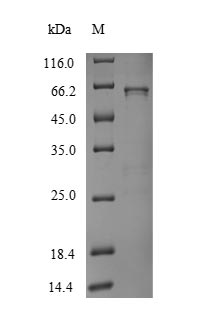

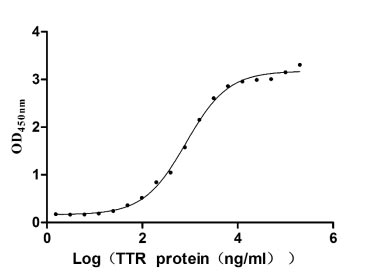
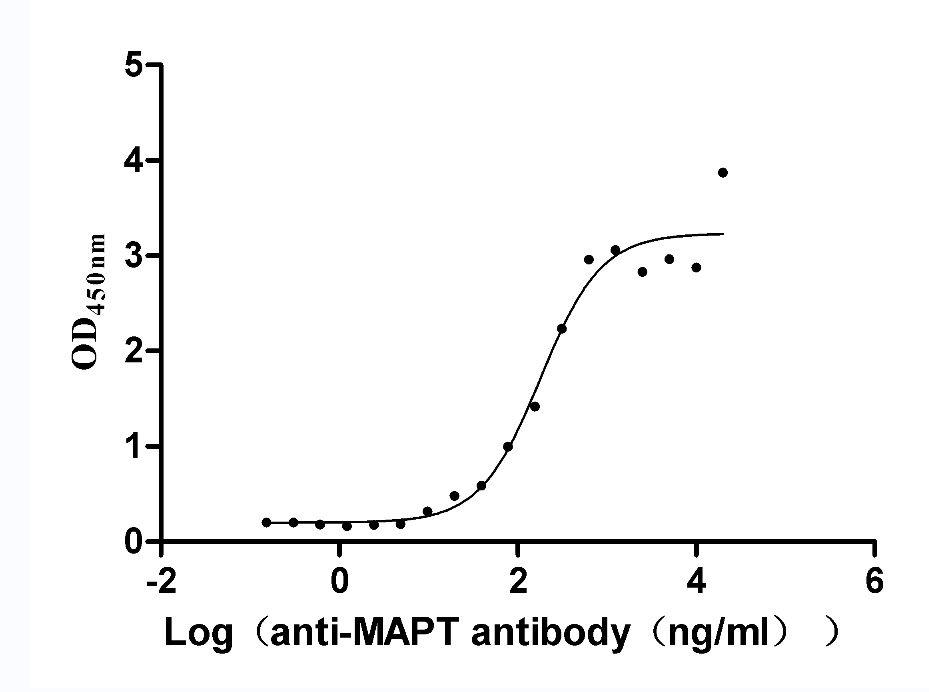
f4-AC1.jpg)
